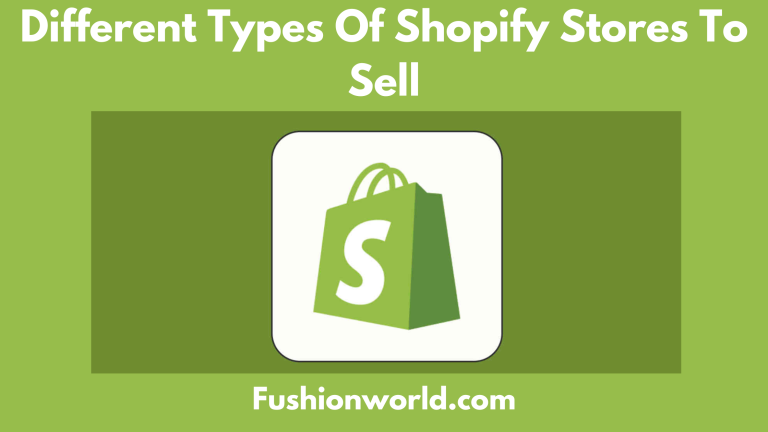Table of Contents
Introduction:
One of the key reasons for the popularity of Shopify is that you don’t have to be experienced in business or have any technical prowess to be able to use the platform. The convenience and simplicity offered by Shopify have led it to Different Types Of Shopify Stores To Sell become the preferred eCommerce platform of choice for close to 2 million businesses. The simplified user interface (UI) and the admirable user experience (UX) work both ways that attract millions of shoppers annually. Naturally, it is more lucrative to own a store on a platform that is popular with customers.
ECommerce has been witnessing a boom lately and this is directly reflected in the global sales and revenue generated on the Shopify platform. This is also an attractive and rewarding time for putting your Shopify stores for sale for potentially high returns. Shopify is full of stores of various types from small and medium businesses to those operated by global chains. Here are some of the popular kinds of Shopify stores for sale that you are likely to come across.
- Retail businesses – Possibly, most Shopify stores for sale fall under this category that involves selling directly to customers, also known as B2C. Various models exist ranging from producing your own goods (manufacturing and selling) to procuring them from one or several third parties and selling them under your brand (private labeling). Some people also opt for the retail arbitrage model in which you buy goods from physical stores and sell them on your Shopify store at a profit. This, though, can be challenging and complicated as it involves a fair bit of effort and the margins are low due to competitive prices and attractive discounts being offered by e-tailers.
- Dropshipping businesses – Another quite popular type of Shopify stores for sale that you will come across is dropshipping businesses. The concept is quite simple which is why it is highly appealing to first-time business owners. A dropshipping business does not hold its own inventory or incur any costs related to shipping. You can partner with another enterprise that does all the manufacturing and provides fulfillment services as well, or, uses another dropshipping agency specifically for the logistics and delivery. What you get is less hassle, more convenience, and more time to focus on expanding your business.
- Wholesale businesses – Unlike retail business, in a wholesale business, also referred to as B2B selling, you sell directly to other enterprises. However, apart from the entity you’re selling to, a lot of the process is similar to a retail business. Here, too, you have the option of owning your inventory or sourcing it. Moreover, you can choose to manage your fulfillment or outsource it to a third party. Do note, a wholesale business requires a high degree of interpersonal skills to form a robust professional network to that you can sell your product or services. The business can become lucrative if you can secure annual contracts assuring you of a retainer amount or generate recurring income.
- Print-on-demand businesses – While not a new trend, print-on-demand businesses have branched out into many forms lately. Think of novelty mugs, cups, cards, tee-shirts, posters, etc with quirky captions and customized images. That’s exactly what this business is all about. There is hardly any inventory to maintain or associated storage costs. Such businesses simply need a multipurpose printer to commence operations with a very low upfront capital expense.
The availability of these and several other types of Shopify stores for sale is what makes the online platform so appealing to buyers and sellers alike. Irrespective of the type you own, an important step in the selling process involves identifying the right medium to sell your enterprise.
Where to sell your Shopify business?
The mode you use to list your Shopify stores for sale could have a direct impact on the final amount you receive in the process. Typically, you have three options for this:
- Private sale – A private sale is an ideal option if you are willing to put in the effort and have a wide network of potential buyers. You can save a lot of overhead expenses by managing on your own the various aspects such as listing, identifying buyers, gathering your financial and operational data, and negotiating the price.
- Sell through a broker – A broker is a helpful option for first-time sellers and can expedite the sale of your Shopify store. A broker will be able to manage the discussions, connect you with prospective purchasers, and make sure you are paid promptly and in full. This, naturally, will come at a price. You will need to factor in the brokerage before deciding on this option.
- Sell to an acquirer – A popular and hassle-free option is to allow professional acquiring firms to take over your Shopify stores for sale. Not only do you save the cost of brokerage, but you also get a fair market price for your online business. Furthermore, many such firms tend to integrate the Shopify stores for sale with their existing platform which prolongs the longevity of the enterprise that you created so fondly.
If you’re contemplating exiting your business then click on the link to know more about how to sell your Shopify store.

